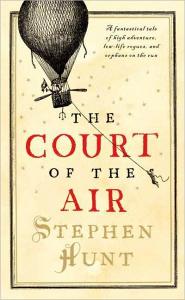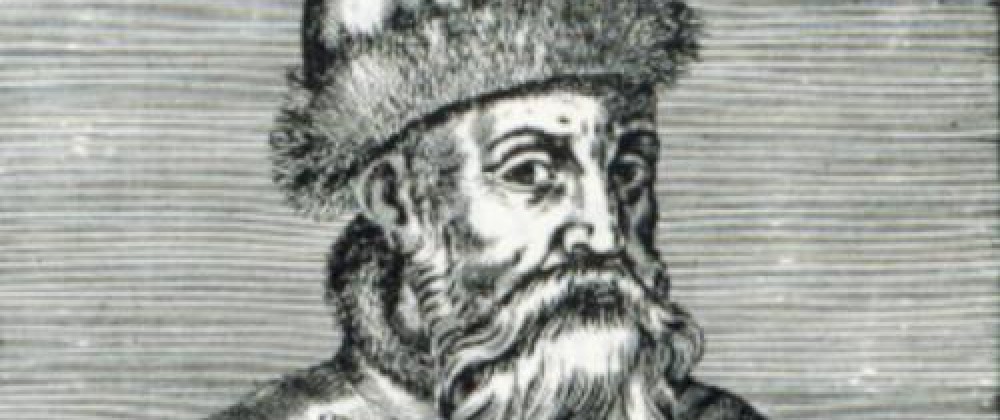 “We’re the ghosts in the machine, Oliver, keeping the game straight and hearts pure. The only thing they know about us is the name Kirkhill gave us – the Court of the Air; the highest bleeding court in the land.”
“We’re the ghosts in the machine, Oliver, keeping the game straight and hearts pure. The only thing they know about us is the name Kirkhill gave us – the Court of the Air; the highest bleeding court in the land.”
About five years ago, a title leaped out at me from the shelf as I walked through my local bookstore. The Court of the Air by Stephen Hunt, described on the dust cover as, “A fantastical tale of high adventure, low-life rogues, and orphans on the run.” Now I’m a sucker for both fantasy and adventure novels, especially those with a historical feel, and a quick read of the synopsis suggested that this novel could be all those things, with the added bonus of being Steampunk. At the time, I set it back down, thinking to pick it up at a later date–and then promptly forgot it. Flash forward a year and the same title once again leaped out at me while strolling through another bookshop. It also leaped out in hardcover for an absolutely reasonable price. So, I bought it, set it on the shelf with the intent to read, and there it sat until earlier this year. When I finally got around to reading it, I realized that I’ve been missing out on the Steampunk equivalent of J. R. R. Tolkien or George R.R. Martin. I also realize that if I missed out on this for six years, you might too, and we can’t have that.
So, synopsis please, and we’ll go from there.
The Court of the Air is nominally the story of two orphans, one being the foundling Molly Templar, a street urchin left to the care of the Sungate workhouse in Middlesteel, capital of the nation-state of Jackals. The other, one Oliver Brooks, is also an orphan after an Aerostat crash into the feymist (magical faerie mist is the only way I can describe it) that blankets parts of Jackals killed his parents and left him alone in the world except for his uncle Titus. Life is hard for both Molly and Oliver. She goes from job to job, the proceeds confiscated to pay for her care at the workhouse until she comes of age and finds a career, while he is ostracized by the community and forced to register with the worldsingers (a type of magician) every week to prove the latent mystical powers they suspect he has as a result of his time in the feymist have not manifested. When everyone in Molly’s workhouse is slaughtered by a mysterious assassin, and Oliver’s uncle is murdered in his house and he subsequently framed for the crime, both go on the run and into a series of adventures that will eventually bring them and their stories together—and may possibly rip both the state of Jackals and literally their entire universe apart. That is, unless they can find a way to stop it.
The Court of the Air is a novel of intrigue within intrigue, with many factions on the trail of the two orphans, some to protect them, others to stop them from fulfilling a destiny they aren’t even aware of. It’s also a masterful blend of both Steampunk and something somewhat unique to the genre. Sure, it was quite obvious in the opening pages that there would be the traditional Steampunk fare: Autonomous Steam Men, Aerostats (also known as Zeppelins), Pneumatic Buildings and Subterranean Cities, but what piqued my interest was the addition of magic. Elements such as the Feymist (faerie) creatures, the Special Guard (those augmented by their exposure to the world beyond), Worldsingers (magicians who utilize the power of the earth in their arts), even the militia’s muskets relying on crystals grown for use as a sort of magical gunpowder, all add a mystical element to a genre that (I think) is not generally known for it.
I would be remiss at this point not to mention the Court of the Air itself, an organization whose existence is whispered amongst the people but rarely seen. A shadowy league, influencing significant events from behind the scenes for their own altruistic–or nefarious–purposes. A cabal to whose attention Oliver and Molly have unwittingly come.
There are times in which The Court of the Air can be a tricky read. Stephen Hunt has managed to create a universe with its own particular accent, especially with regards to the language. The novel is chock full of Jackelian slang. As an example, Crushers are police, Wordsingers are magicians, even the honorifics mister and missus become Samson and Damson. Many times while reading The Court of the Air, I wished for a dictionary of Jackelian vernacular, but much like a Dickens novel, you get used to it, and it gives the novel a particularly strong air of authenticity. Speaking of Charles Dickens, Hunt’s work has much the same feel, writing of orphans and workhouses, characters with a hidden destiny, a gentrified society of haves and have-nots, and all wrapped in wonderful prose of a decidedly Victorian flavor.
Hunt’s Universe is also very obviously a blending of English history and Steampunk fantasy, what with the Kingdom of Jackals being nominally a constitutional monarchy that has neutered the power of the King after a conflict reminiscent of the English Civil War. Even the troops carry weapons that nod to their historical counterparts. The New Pattern Army of Jackals recycles a variation of Oliver Cromwell’s New Model Army, and its soldiers are loaded out with a musket called the Brown Jane, recalling the real life Brown Bess. Calling the militia Redcoats simply completes the picture. However, the automaton Kingdom of Mechancia and the evil shadows of the Wildcaotyl bring both a Steampunk and fantastical element to Jackals history.
Even the political ideologies of the major factions are patterned on historical examples. Jackals is a social democracy where parliament rules with a king as figurehead only, while their enemy, the Commonshare of Quartershift is an obvious allusion to both the former Soviet Union and the ideology of Communism. Within Jackals itself, there is a debate between the accepted state of society and the criminalized works of Benjamin Carl, a Marx-like figure whose treatise, “Community and the Commons,” sparked a failed revolution years earlier.
This spectacular novel does take a while to become fully immersed in, what with the learning curve of both the colloquial slang and the sheer size of Hunt’s universe. In the final analysis, The Court of the Air is a novel that you don’t so much read as you do explore. And that makes for a wonderful novel that deserves to be the standard to which other Steampunk novels be compared.
A++
